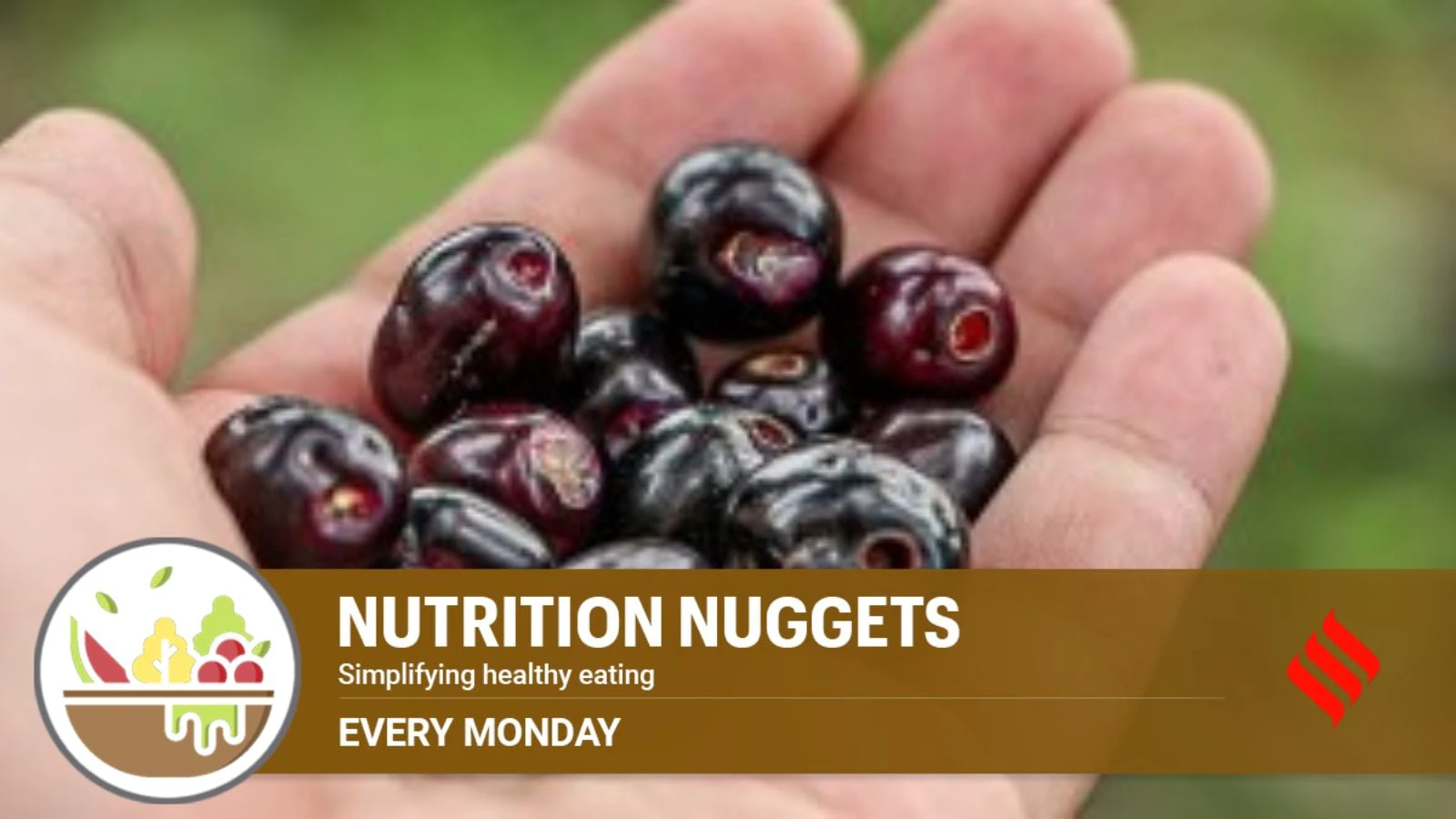You may have often been advised to eat jamun, also known as black plum or Indian blackberry, for diabetes because it doesn’t spike your blood sugar quickly.
But it is also a healing food for the liver.
How jamun supports liver health
Jamun has antioxidants like anthocyanins and flavonoids that help cleanse the liver and protect it from oxidative stress or cell damage. It reduces liver inflammation, liver enzyme levels and helps in regeneration of damaged liver cells. Regular consumption may reduce fat-buildup in the liver, especially in those with high cholesterol or obesity. The fruit helps regulate bile flow, reduces bloating and keeps the digestive system healthy – all of which indirectly support liver function.
How it controls blood sugar
It is also rich in compounds that regulate how your body converts starch into sugar, keeping your blood sugar levels more stable. Some studies suggest jamun may help your body use insulin more effectively.
How to eat jamun for maximum benefit
It is best had raw and fresh. Wash the fruit well, remove the seeds (or keep them if you plan to use them) and eat them as a snack or dessert.
Dried jamun seeds can be ground into powder and taken with water. Take about 1 teaspoon in the morning, after checking with your doctor. Freshly made juice (without sugar) is also helpful. Drink 50-100 ml in the morning, not more than once a day.
How much jamun can you eat in a day?
For most people, 8-10 jamuns per day (roughly one small bowl) is a safe amount. Diabetics should monitor blood sugar if eating for the first time and stick to a small serving – ideally not more than 100 grams (half a cup). Always eat it as part of a balanced meal, not on an empty stomach or in excess.
Best use of seeds
Jamun seeds are not eaten raw like the fruit but they are highly valued in powdered form. They contain compounds that help reduce blood sugar levels. You can dry the seeds in the sunlight, grind them into a fine powder and take one teaspoon daily mixed with water or buttermilk – but only after consulting your doctor, especially if you’re on diabetes medication.
Which fruits should not be combined with jamun?
It’s generally best to eat jamun on its own, not mixed with other fruits. Some fruits you should avoid combining with jamun are:
Citrus fruits (like oranges, sweet lime): These are acidic and may clash with the astringent nature of jamun, causing acidity or indigestion.
Milk-based fruits (like bananas or chikoo): Can lead to digestive issues when mixed with jamun.
High-sugar fruits (like mangoes, grapes): This combination can spike blood sugar in diabetics.
Also avoid having jamun along with dairy products like milk or curd immediately, as it may interfere with digestion.
